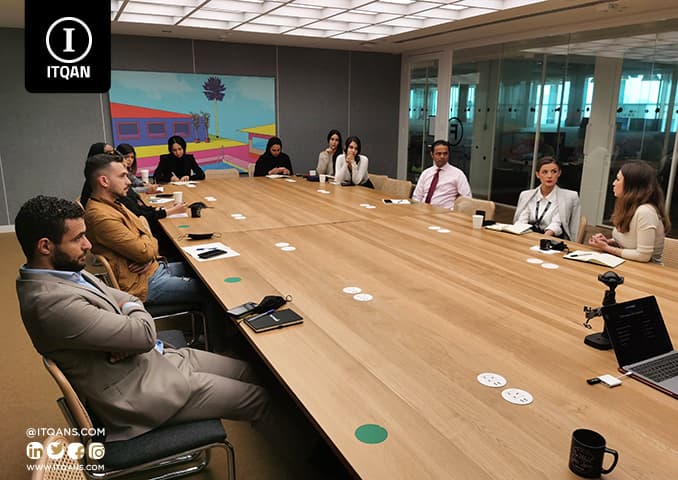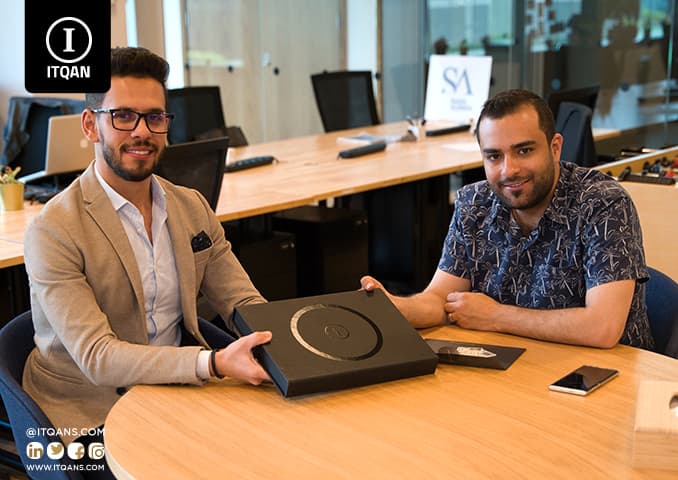Conditions for establishing a company in the Gulf, the Arabian Gulf region is an attractive destination for investors and entrepreneurs seeking to establish their companies in a developed and prosperous business environment. The Gulf countries are characterized by the presence of a strong infrastructure, diverse economies, and legal systems that support growth and investment. However, establishing a company in the Gulf requires compliance with a set of conditions and requirements that vary from one country to another. These conditions aim to regulate the business environment and ensure the achievement of economic and development goals. Conditions for opening a company in the Gulf By cooperating with Itqan Company, investors and entrepreneurs can obtain the necessary guidance and support to understand and apply these conditions correctly.
With its deep knowledge and experience in the Gulf market, Itqan provides comprehensive consulting and specialized services that help facilitate the process of establishing companies and overcome potential challenges. The basic requirements that must be met to establish a company in the Gulf vary, starting from registration and licensing requirements, to financial and commercial conditions. Investors must provide necessary documents such as passports, proof of investments, and business plans, in addition to complying with local regulations related to taxes and business. By understanding the precise requirements and preparing the necessary documents, new companies can benefit from the dynamic business environment in the Gulf and achieve success and growth. Itqan provides the necessary support and expertise to ensure that investors comply with all legal and regulatory requirements, which contributes to achieving their business goals and establishing a strong and sustainable presence in the Gulf market.

جدول المحتوى
ToggleBasic documents required to establish a company in the Gulf
Establishing a company in Dubai, the Arabian Gulf requires the submission of a set of basic documents that vary slightly from country to country, but generally include documents that form the basis for starting the registration and business establishment process. The required documents provide clarity and proof of legal and regulatory requirements, facilitating the smooth and efficient implementation of the establishment procedures. Basic documents typically include information about the partners, business activity, and location, and help ensure compliance with local laws and regulations. The basic documents required to establish a company in Dubai, the Gulf:
- Valid Passport: Copies of passports of all partners or shareholders of the company must be provided. These documents are used to verify identity and confirm nationality.
- Personal Photos: Some countries require recent personal photos of partners or general managers as part of the registration process.
- Articles of Association and Memorandum of Association: Legal documents that must be submitted include the Memorandum of Association and the Articles of Association of the company. The Memorandum of Association includes details of the partners, the type of company, and the purpose of its establishment, while the Articles of Association specify the internal rules and management procedures.
- Proof of address: Proof of address is required for partners or shareholders, which may include a utility bill such as electricity or water or a lease agreement. This is used to confirm the location of the residence or office.
- Business Plan: A detailed business plan is often required that outlines the proposed business activity, market strategies, and financial analysis. This document helps demonstrate the feasibility of the project and convince government agencies to issue the necessary licenses.
- Financial Proofs: Some countries require financial proof such as bank account statements or letters from banks to confirm the financial capacity of partners or shareholders.
- Business-specific licenses: Depending on the type of business, additional licenses may be required. For example, companies operating in regulatory areas may require a special license from the relevant authorities.
- Registration Application Form: Local authorities require a company registration form to be completed. This form must be submitted complete with correct information and attached certificates.
- Health Insurance: In some cases, proof of health insurance may be required for employees as part of the registration process, especially if there are local or expatriate employees.
- Approval from the competent authorities: Some commercial activities require obtaining prior approvals from the competent government authorities before starting the establishment process, such as the Ministry of Commerce or other local authorities.
Basic documents are a vital step in the company formation process, ensuring compliance with laws and helping to facilitate government procedures. By submitting these documents correctly and completely, investors and new companies can start their business in the Gulf in an organized and efficient manner.

Procedures for obtaining work permits in the Gulf
Obtaining work licenses is an essential step in the process of establishing a company in Dubai in the Arabian Gulf region. Licenses are legal permits that allow companies to operate legally in the market, and the procedures required to obtain them vary between Gulf countries based on local regulations and the requirements of each country. Obtaining licenses requires completing a set of steps that include submitting the required documents, fulfilling the legal requirements, and paying the prescribed fees. These procedures aim to ensure that companies comply with regulatory and legal standards, which contributes to regulating the market and enhancing transparency. Procedures required to obtain work licenses in the Gulf:
- Preparing the required documents: Obtaining a business license requires collecting and preparing a set of basic documents such as the articles of association, the company’s articles of association, passports, proof of address, and the business plan. You must ensure that all documents are up to date and correct.
- Submitting the registration application: The registration application must be submitted to the relevant authorities, such as the Ministry of Commerce or the Economic Development Authority in the relevant country. The application usually includes details about the business activity, partners, and the company’s designated address.
- Application Review and Initial Approval: After submitting the application, the relevant authorities review the documents and ensure that they comply with legal standards. Interviews may be conducted or additional information may be requested if necessary. In the event of initial approval, a certificate or initial permit will be issued.
- Conducting a site inspection: In some countries, obtaining a business license requires an inspection of the company’s designated site, such as offices or facilities. This inspection is intended to ensure that the site complies with health, safety and security regulations.
- Payment of the required fees: The required fees must be paid to obtain the license. The fees vary depending on the type of business activity and the type of license required. These fees are usually paid to the relevant government authorities through approved payment channels.
- Obtaining additional approvals: For some business activities, it may be necessary to obtain additional approvals from other competent authorities, such as health or environmental authorities, depending on the nature of the activity.
- Receiving the final license: After completing all procedures and final approval, the final license is issued to the company. Companies must keep a copy of the license in a safe place and show it upon request.
- Tax and Social Security Registration: After obtaining the license, companies must register with the tax authorities and submit employee data to the competent social security authorities, in accordance with local laws.
- Commitment to renew licenses: Business licenses are often valid for a limited period, so it is essential to keep track of renewal dates and renew licenses in a timely manner to avoid any disruption to business operations.
These steps are essential to ensure compliance with local laws and enable businesses to operate legally and regulated in the Gulf region. By carefully following these steps and working with specialized consulting firms, new businesses can avoid legal hurdles and achieve success in the Gulf business environment.
Our company’s role in establishing a company in the Gulf
In conclusion, when discussing the requirements for establishing a company in the Gulf, it is clear that compliance with local market requirements is a vital step to ensure the success and continuity of the business project. The Arabian Gulf region offers a thriving and supportive business environment for investors, but adherence to legal and regulatory requirements is what distinguishes successful companies from others. By understanding the requirements for licensing, registration, and compliance with local regulations, investors can establish their companies on a strong and sustainable foundation.
Itqan plays a key role in this context by providing comprehensive consulting and customized support that helps investors overcome potential challenges and comply with the required conditions. With its extensive experience in the Gulf market and in-depth knowledge of legal and regulatory systems, Itqan provides the necessary guidance to ensure that the company formation process runs smoothly and efficiently.
Adhering to the terms and ensuring the necessary documentation is essential to the success of any business venture in Dubai . By working with Itqan, investors can get the necessary advice to avoid common mistakes and ensure compliance with all legal and regulatory requirements. The support provided by Itqan can be the decisive factor in achieving business goals and establishing a strong and sustainable presence in the dynamic Gulf market.
By leveraging the specialized expertise of Itqan, it becomes possible to make the most of business opportunities in the Gulf, and ensure success and growth in the evolving business environment. Good preparation and proper guidance are the keys to success in establishing companies, which makes cooperation with Itqan a necessary step for investors who want to fully benefit from the potential of the Gulf market.
Frequently asked questions about setting up a company in the Gulf
What are the basic documents required to establish a company in the Gulf?
The documents required vary depending on the type of business and the country in which it is incorporated, but in general, basic documents include a passport, passport photos, proof of address, a business plan, and financial evidence such as bank account statements. Some countries may also require special approvals or additional licenses depending on the type of business.
Is there a minimum capital required to establish a company in the Gulf?
Yes, the minimum capital required varies depending on the type of company and the country. In some countries, there may be capital requirements to open a company, while in other countries this minimum may be lower or not required if the company operates in a free zone.
What are the main advantages of setting up a company in the free zones in the Gulf?
Free zones in the Gulf are attractive to businesses due to tax exemptions, ease of incorporation procedures, and no restrictions on foreign ownership. Free zones also provide a flexible business environment with access to global markets thanks to their strategic location.
Do foreign companies have to have a local partner to establish a company in the Gulf?
In some Gulf countries, establishing a company in the local market requires a local partner or agent. However, this requirement may not apply in free zones that allow full foreign ownership.
What are the procedures required to obtain work permits in the Gulf?
The procedures for obtaining business licenses include submitting registration applications, submitting the required documents, obtaining the necessary approvals from the competent authorities, and paying the required fees. These procedures may vary depending on the type of license and the field in which the company operates.
Are companies in the Gulf required to have health insurance for employees?
Yes, some Gulf countries require companies to have health insurance for employees as a prerequisite for their registration. Health insurance is part of the company’s obligations towards its employees and ensures that basic healthcare is provided.
















